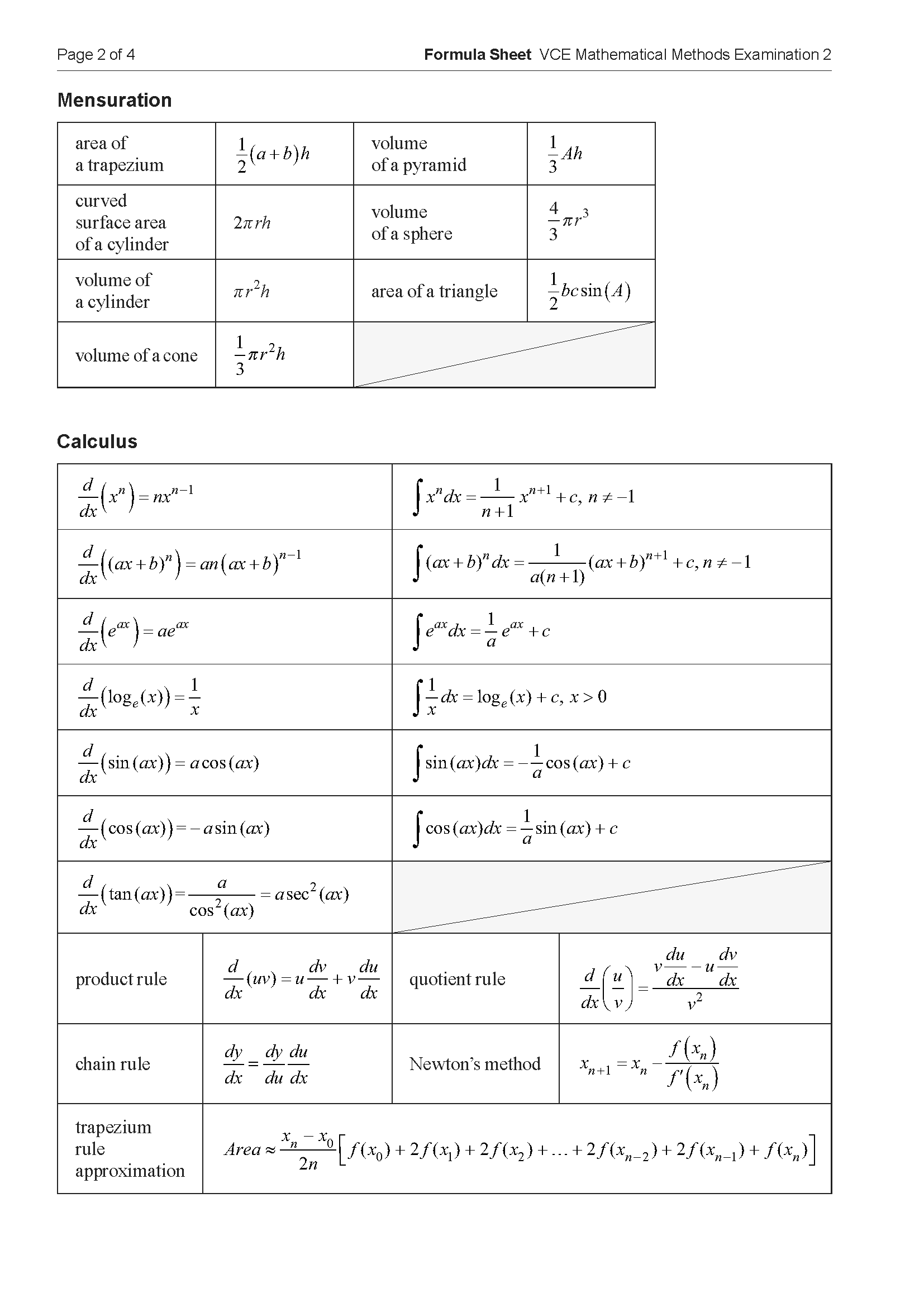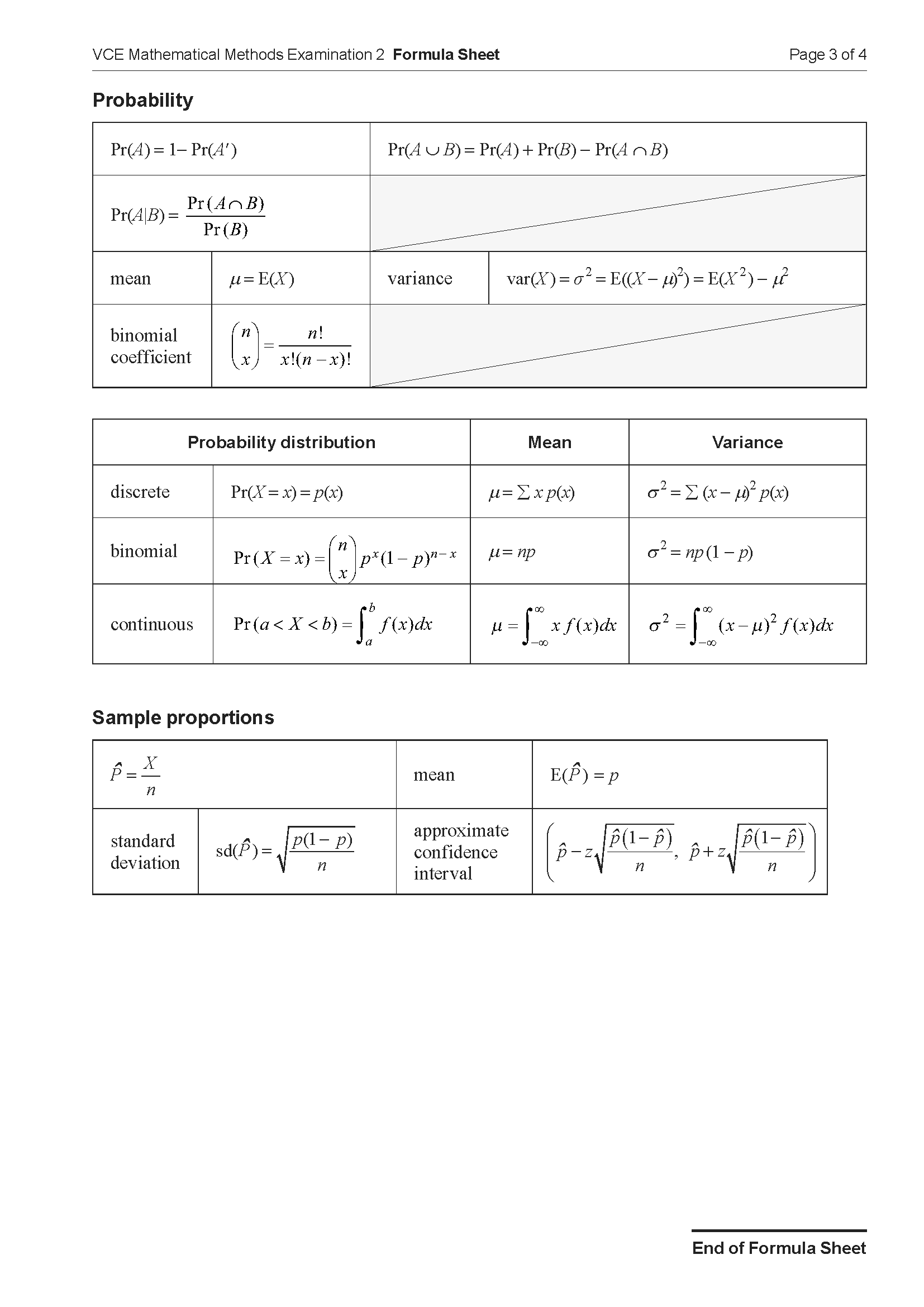VCE Maths Methods Discrete Probability Mini Test 2
Number of marks: 4
Reading time: 1 minute
Writing time: 6 minutes
Section A – Calculator Allowed
Instructions
• Answer all questions in pencil on your Multiple-Choice Answer Sheet.
• Choose the response that is correct for the question.
• A correct answer scores 1; an incorrect answer scores 0.
• Marks will not be deducted for incorrect answers.
• No marks will be given if more than one answer is completed for any question.
• Unless otherwise indicated, the diagrams in this book are not drawn to scale.
The random variable \(X\) has the following probability distribution, where \(0 < p < \frac{1}{3}\).
| \(x\) | -1 | 0 | 1 |
| \(\Pr(X=x)\) | \(p\) | \(2p\) | \(1-3p\) |
The variance of \(X\) is
- A. \(2p(1-3p)\)
- B. \(1-4p\)
- C. \((1-3p)^2\)
- D. \(6p - 16p^2\)
- E. \(p(5-9p)\)
The number of pets, \(X\), owned by each student in a large school is a random variable with the following discrete probability distribution.
| \(x\) | 0 | 1 | 2 | 3 |
| \(\Pr(X=x)\) | 0.5 | 0.25 | 0.2 | 0.05 |
If two students are selected at random, the probability that they own the same number of pets is
- A. 0.3
- B. 0.305
- C. 0.355
- D. 0.405
- E. 0.8
Consider the discrete probability distribution with random variable \(X\) shown in the table below.
| \(x\) | -1 | 0 | \(b\) | \(2b\) | 4 |
| \(\Pr(X=x)\) | \(a\) | \(b\) | \(b\) | \(2b\) | 0.2 |
The smallest and largest possible values of \(E(X)\) are respectively
- A. -0.8 and 1
- B. -0.8 and 1.6
- C. 0 and 2.4
- D. 0.2125 and 1
- E. 0 and 1
The discrete random variable \(X\) has the following probability distribution.
| \(x\) | 0 | 1 | 2 | 3 | 6 |
| \(\Pr(X=x)\) | \(\frac{1}{4}\) | \(\frac{9}{20}\) | \(\frac{1}{10}\) | \(\frac{1}{20}\) | \(\frac{3}{20}\) |
Let \(\mu\) be the mean of \(X\).
\(\Pr(X < \mu)\) is
- A. \(\frac{1}{2}\)
- B. \(\frac{1}{4}\)
- C. \(\frac{17}{20}\)
- D. \(\frac{4}{5}\)
- E. \(\frac{7}{10}\)
End of Section A
Section B – No Calculator
Instructions
• Answer all questions in the spaces provided.
• Write your responses in English.
• In questions where a numerical answer is required, an exact value must be given unless otherwise specified.
• In questions where more than one mark is available, appropriate working must be shown.
• Unless otherwise indicated, the diagrams in this book are not drawn to scale.
End of examination questions
VCE is a registered trademark of the VCAA. The VCAA does not endorse or make any warranties regarding this study resource. Past VCE exams and related content can be accessed directly at www.vcaa.vic.edu.au

